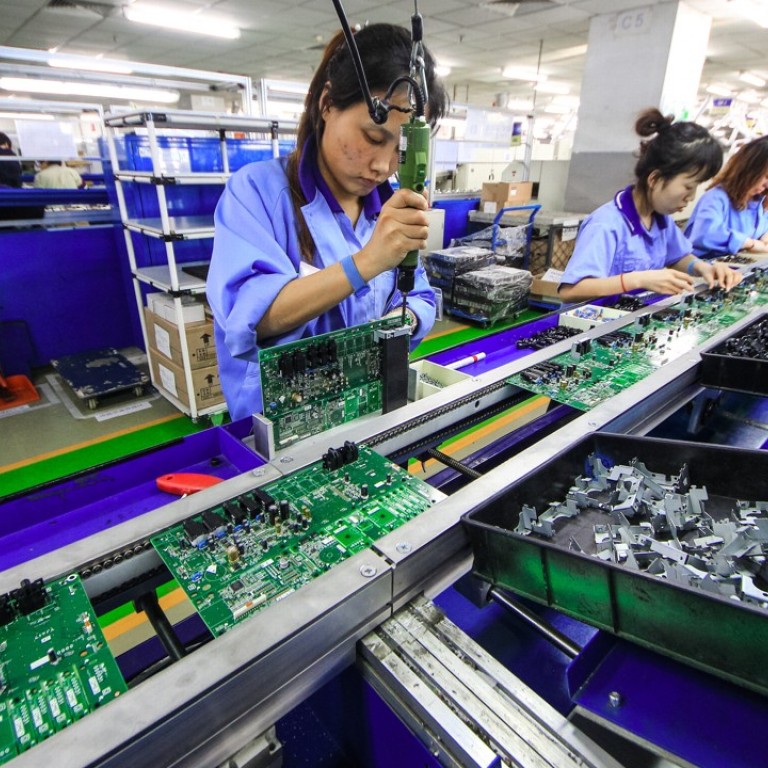
Trade war can seriously derail China economic development, says Mohamed El-Erian
- China could slip into middle income trap if trade war persists
- By ending trade war, China can regain economic momentum, says Mohamed El-Erian
China should make concessions to reach a permanent trade deal with the US during the current 90-day ceasefire because it could seriously derail its economic development if it fails, said the chief economic adviser at Allianz Group, Europe’s largest insurer.
“The benefit of defusing the trade tensions is that you reduce the risk of falling into the middle income trap,” Mohamed El-Erian told a press briefing in Hong Kong. “My expectation is that something material will occur within the 90-day time period.”

The middle income trap is a concept first put forward by the World Bank in 2006 to describe a situation in which a rapidly emerging economy’s growth rate stagnates and the country is unable to generate further economic momentum.
El-Erian highlighted the fates of economies like Argentina and Brazil, which have both experienced sustained financial crises and social unrest. China has held off such crises to date.
Resetting the US-China trade relationship has been a cornerstone of the Trump administration’s foreign policy. President Donald Trump believes that the trade deficits the US runs with many of its partners was a sign of weakness in the US economy.
El-Erian, a former CEO of investment management firm Pimco, said that South Korea, Mexico, Canada, and the European Union, which have all been targets of Trump’s forceful rhetoric on trade, concluded that the right response was to make concessions to the US.
He said that because the US is bigger and more flexible as an economy, it can withstand damage suffered in the trade war and still emerge victorious.
The US exerted enough pressure to bring China to the negotiating table, where it secured a reprieve on Trump’s planned escalation in tariffs on US$200 billion of imports from China from 10 per cent to 25 per cent in January.
The tariffs are piling pressure on the economy.
Xie Yaxuan, chief macro analyst of China Merchants Securities, wrote in a research note that the impact of the US-China trade friction on the real economy will show up in the first half of 2019 and that it will be difficult for existing policies to offset the downward pressure.
Macquarie Capital has predicted that China’s economic growth will slow to 6.2 per cent in 2019, down from 6.6 per cent this year.
Opinion is divided as to whether the trade war can be resolved, with some analysts saying that an agreement could be reached if low-level policy changes are discussed, but that structural changes will be difficult to accomplish.
Stephen Olson, research fellow at the Hinrich Foundation, a pro-trade group, said that China recognised some changes would have to be made, but that it would not be willing to disassemble its state-directed form of capitalism.
“Some degree and form of state-owned enterprise reform are possible, but the real question is whether China is able to go far enough to meet the needs of the US,” Olson said.
He added that there is room to resolve the two other main trade disputes: cutting US’s bilateral trade imbalance and the issue of intellectual property theft.
US and China reach 90-day trade tariff ceasefire after China agrees to buy ‘very substantial’ amount of American goods
Planned reform of the Chinese patent and copyright laws, both of which have been in the works for a number of years, could be brought forward to assuage the demands of the US government, analysts have said.
China is already making some progress. Chinese officials were reported this week to have begun preparing to restart imports of US soybeans and liquefied natural gas.

